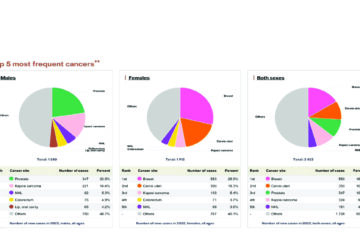Justicia Shipena
To be removed from the European Commission’s high-risk list, Namibia must show sustained progress in implementing the Financial Action Task Force (FATF) Action Plan.
This includes strengthening the country’s anti-money laundering and counter-terrorism financing (AML/CFT) systems.
Namibia was added to the European Union’s list of high-risk jurisdictions on 10 June, following the EU’s standard practice of aligning with the FATF grey list.
Other countries on the list include Algeria, Angola, Côte d’Ivoire, Kenya, Laos, Lebanon, Monaco, Nepal, and Venezuela.
The European Commission’s decision follows the FATF’s February 2024 Plenary Meeting, during which Namibia was placed on the grey list due to strategic deficiencies.
Namibia now has 11 months to address the action items needed for removal.
According to the EU office in Namibia, once Namibia is removed from the FATF grey list, the European Commission will assess the reforms undertaken, based on EU-specific rules for delisting.
The listing decision is currently under review by the European Parliament and the Council of Ministers.
If approved, it will take effect 20 days after publication in the EU Official Journal.
Once in force, EU banks and financial institutions will be required to apply enhanced due diligence measures when handling transactions involving Namibia.
These include additional checks and greater scrutiny of cross-border transactions. However, the listing is not a sanction and does not prevent Namibia from accessing EU trade, investment, or cooperation funding.
The EU clarified that the listing is procedural, not political or punitive.
The EU Delegation to Namibia responded positively to a request from Namibian authorities to assist in implementing the FATF Action Plan.
Technical support and expert exchanges are ongoing between EU specialists and Namibian institutions, including the Financial Intelligence Centre (FIC), Namibia Revenue Agency, Customs Authority, and the Namibian Police.
These efforts aim to help Namibia meet FATF requirements and secure removal from both the FATF grey list and the EU’s high-risk list.
European Union Ambassador to Namibia, Ana Beatriz Martins, said the EU remains committed to supporting Namibia.
“The European Union values its strong partnership with Namibia. We are actively supporting Namibia’s efforts to strengthen its anti-money laundering framework through dedicated technical assistance, workshops and training activities between EU and Namibian experts from government, regulators and the financial sector,” said Martins.
“We share the same goal: to work towards a more transparent, secure and trusted global financial system that protects us from abuse by criminals, terrorists, and corruption,” she added.
The European Commission has encouraged continued open dialogue and technical cooperation with both public and private stakeholders in Namibia.
On Friday, the Financial Intelligence Centre announced that Namibia has made progress in addressing eight out of the 13 strategic deficiencies identified by the FATF.




